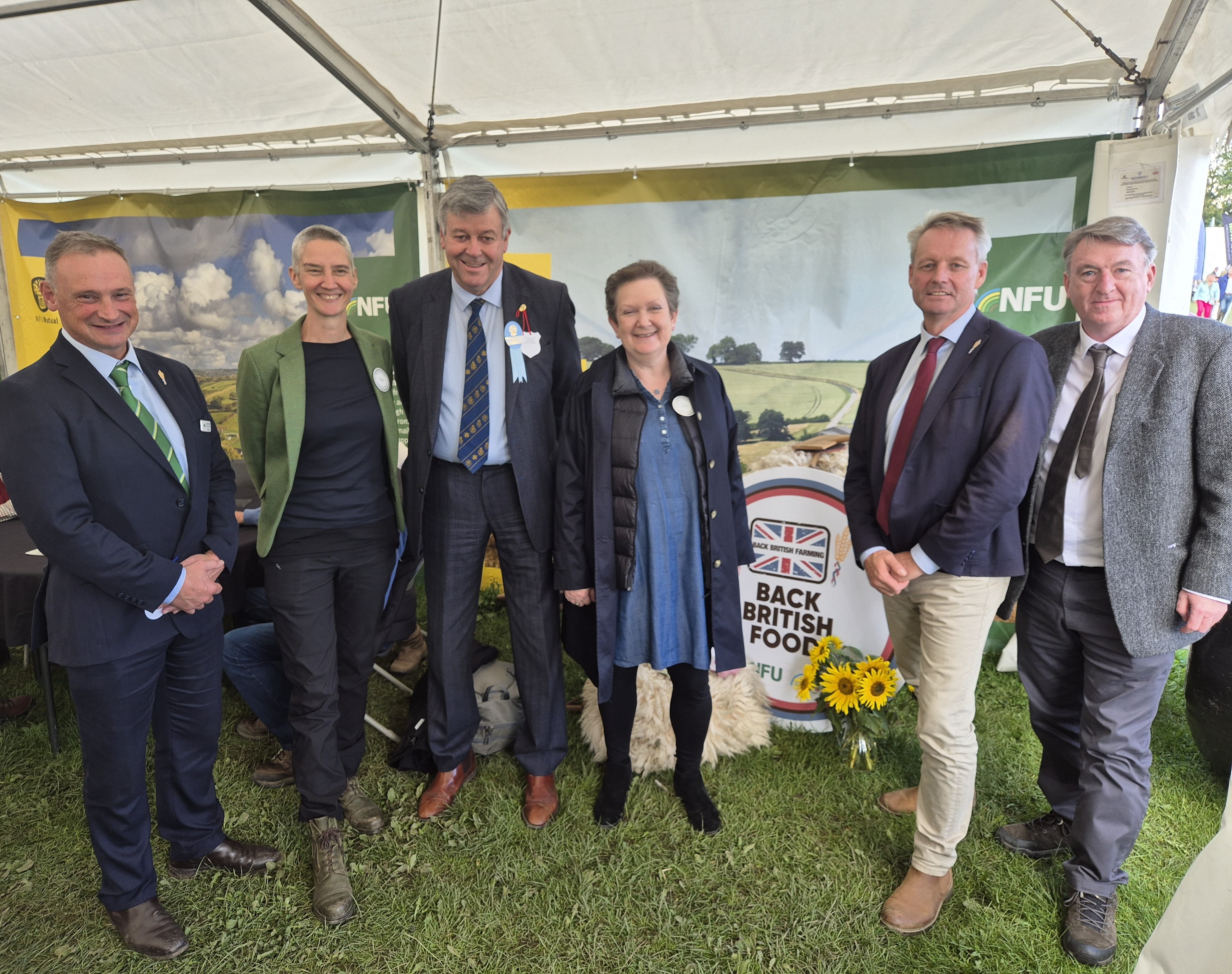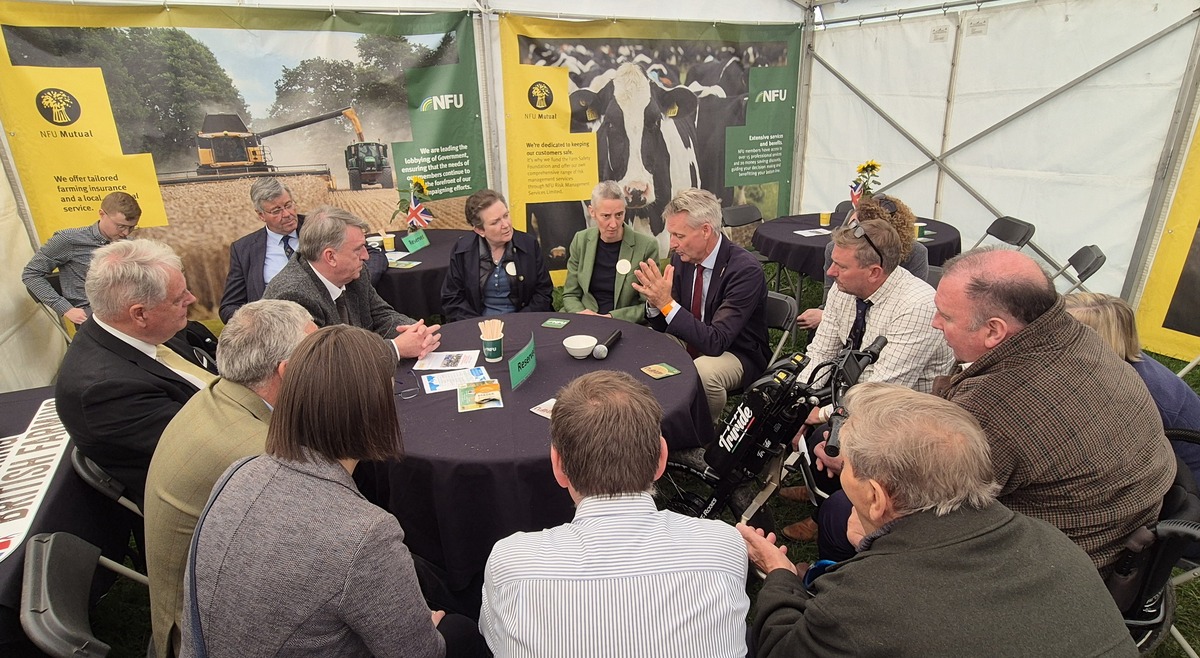The reduction in funding is a result of changes to the government’s environmental schemes from BPS (Basic Payment Scheme) to ELMs (Environmental Land Management schemes).
Farmers met Defra Farming and Countryside Director Janet Hughes, Rural Payments Agency Chief Executive Paul Caldwell and Defra Permanent Secretary Tamara Finkelstein at the Westmorland County Show on Thursday, September 12 to highlight the huge financial losses farmers are facing.
Financial support urgently needed
NFU Deputy President David Exwood said: “It was great to have the Defra director and other officials on stand at the county show meeting members to hear from them direct about the pressures on farm.
“It was alarming to report that our upland farmers here in the Lake District have seen direct payments reduce by more than £10 million in income – that’s just in one year, as there are very limited opportunities to access new ELM schemes. This is vital money that is not going back into the local economy and also caring for the environment.
“Our upland farmers play an important role producing home grown food while also being stewards of some of the country’s most cherished landscapes, they urgently need financial support to survive.
“While NFU campaigning has led to positive increases in the number of options available for upland farmers under SFI (Sustainable Farming Incentive), there still remains challenges about how hill farming businesses will be profitable through this transition period and what is Defra’s long term vision for Lake District farmers.”
Call for HLS payments uplift
The NFU is calling on a mechanism to allow farmers with existing environmental schemes, such as Higher Level Schemes (HLS) or Mid-Tier Countryside agreements, to transfer over into these new schemes so they can work better for their farm.
This is why the NFU is asking for an uplift in HLS payments to help close the funding gap and prevent those who have been pro-active in engaging in agri-environmental schemes from being penalised.
Many farmers have existing agreements which come to an end in December 2024. At present there is no opportunity for them to start applying for a new agreement; farmers can only apply for a new scheme when the old one expires.
The NFU wants to make sure that there is no funding gap for those farmers who find themselves in this situation.
This comes when Defra has recently announced a £358 million underspend in the agricultural budget over the last three years which has left farmers and growers with loss of income during the agricultural transition from the BPS to the new ELMs.
This budget is essential
NFU North Uplands Chair Dave Stanners, who farms in Northumberland, said: “It was pleasing to hear that Defra has listened to some of our pleas and is looking to form an uplands working group to address these problems and ensure upland businesses are part of the solution to Defra’s environmental ambitions.
“We also need the government to truly value UK food security by delivering a renewed and enhanced multi-annual agriculture budget of £5.6 billion on the 30 October, something we called for on Back British Farming day.
"This budget is essential in giving Britain’s farmers and growers the confidence they desperately need to invest for the future and deliver sustainable, affordable homegrown food while creating more jobs and delivering for nature, energy security and climate-friendly farming.”

